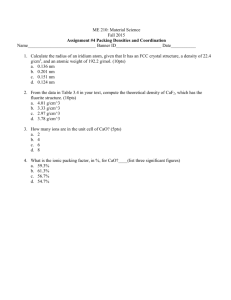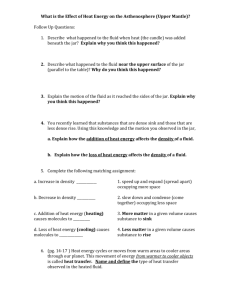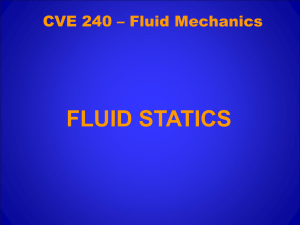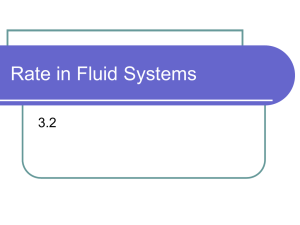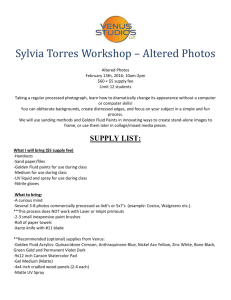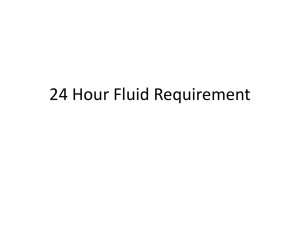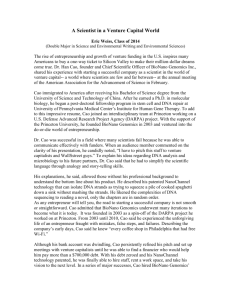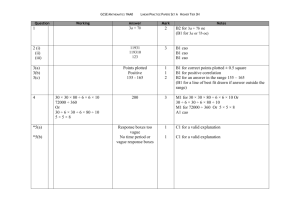Quiz 2 Solution - Chemical Engineering
advertisement
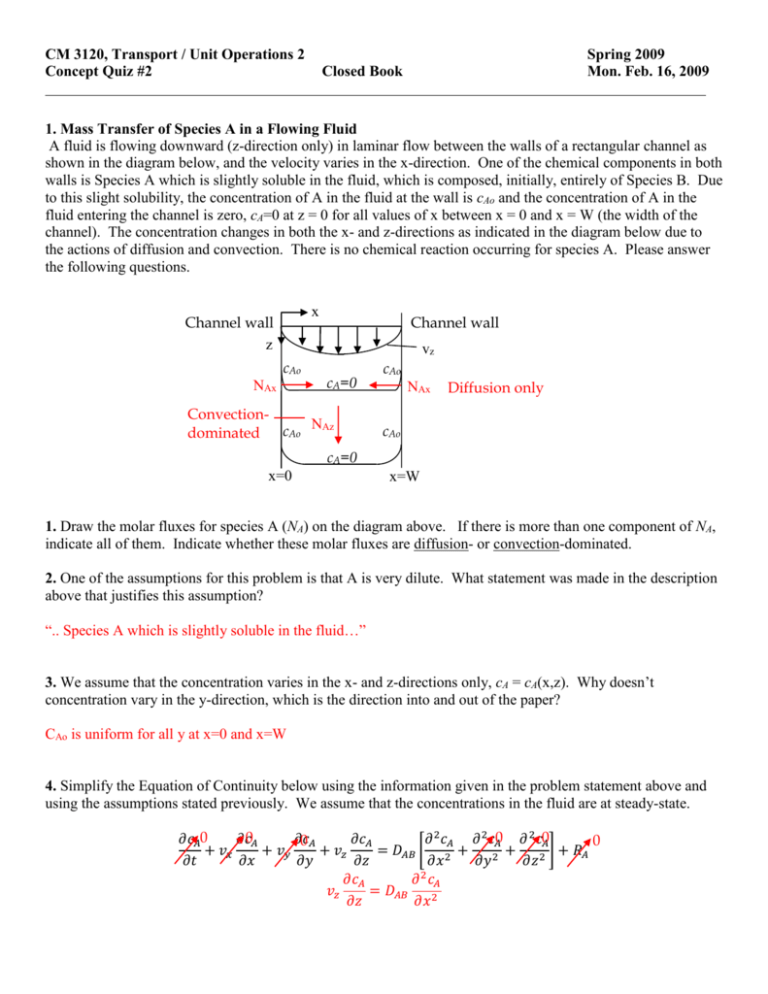
CM 3120, Transport / Unit Operations 2 Concept Quiz #2 Spring 2009 Mon. Feb. 16, 2009 Closed Book 1. Mass Transfer of Species A in a Flowing Fluid A fluid is flowing downward (z-direction only) in laminar flow between the walls of a rectangular channel as shown in the diagram below, and the velocity varies in the x-direction. One of the chemical components in both walls is Species A which is slightly soluble in the fluid, which is composed, initially, entirely of Species B. Due to this slight solubility, the concentration of A in the fluid at the wall is cAo and the concentration of A in the fluid entering the channel is zero, cA=0 at z = 0 for all values of x between x = 0 and x = W (the width of the channel). The concentration changes in both the x- and z-directions as indicated in the diagram below due to the actions of diffusion and convection. There is no chemical reaction occurring for species A. Please answer the following questions. x Channel wall z Channel wall vz cAo NAx cA=0 ConvectionNAz dominated cAo cAo NAx Diffusion only cAo cA=0 x=0 x=W 1. Draw the molar fluxes for species A (NA) on the diagram above. If there is more than one component of NA, indicate all of them. Indicate whether these molar fluxes are diffusion- or convection-dominated. 2. One of the assumptions for this problem is that A is very dilute. What statement was made in the description above that justifies this assumption? “.. Species A which is slightly soluble in the fluid…” 3. We assume that the concentration varies in the x- and z-directions only, cA = cA(x,z). Why doesn’t concentration vary in the y-direction, which is the direction into and out of the paper? CAo is uniform for all y at x=0 and x=W 4. Simplify the Equation of Continuity below using the information given in the problem statement above and using the assumptions stated previously. We assume that the concentrations in the fluid are at steady-state. 𝜕𝑐𝐴0 𝜕𝑐0𝐴 𝜕𝑐 𝜕𝑐𝐴 𝜕 2 𝑐𝐴 𝜕 2 𝑐𝐴0 𝜕 2 𝑐𝐴0 0𝐴 0 + 𝑣𝑥 + 𝑣𝑦 + 𝑣𝑧 = 𝐷𝐴𝐵 [ 2 + + ] + 𝑅𝐴 2 2 𝜕𝑡 𝜕𝑥 𝜕𝑦 𝜕𝑧 𝜕𝑥 𝜕𝑦 𝜕𝑧 2 𝜕𝑐𝐴 𝜕 𝑐𝐴 𝑣𝑧 = 𝐷𝐴𝐵 𝜕𝑧 𝜕𝑥 2
